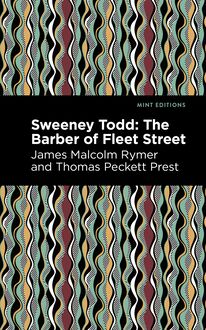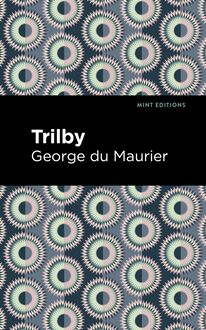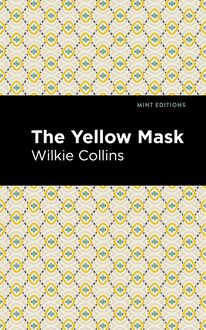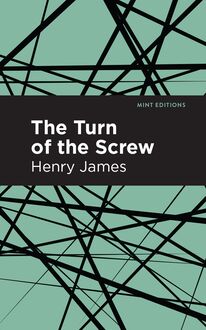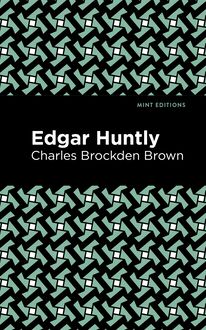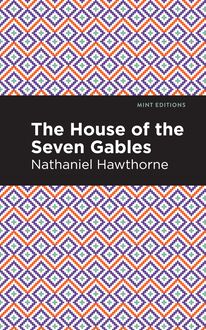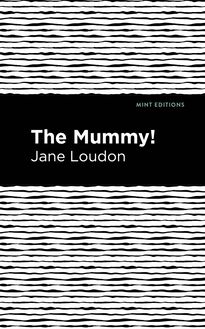-
 Univers
Univers
-
 Ebooks
Ebooks
-
 Livres audio
Livres audio
-
 Presse
Presse
-
 Podcasts
Podcasts
-
 BD
BD
-
 Documents
Documents
-
- Cours
- Révisions
- Ressources pédagogiques
- Sciences de l’éducation
- Manuels scolaires
- Langues
- Travaux de classe
- Annales de BEP
- Etudes supérieures
- Maternelle et primaire
- Fiches de lecture
- Orientation scolaire
- Méthodologie
- Corrigés de devoir
- Annales d’examens et concours
- Annales du bac
- Annales du brevet
- Rapports de stage
La lecture à portée de main
Vous pourrez modifier la taille du texte de cet ouvrage
Découvre YouScribe en t'inscrivant gratuitement
Je m'inscrisDécouvre YouScribe en t'inscrivant gratuitement
Je m'inscrisEn savoir plus
Vous pourrez modifier la taille du texte de cet ouvrage
En savoir plus

Description
Uncle Silas (1864) is a novel by Joseph Sheridan Le Fanu. Expanded from an earlier short story, Uncle Silas is considered an important precursor to the works of Arthur Conan Doyle, and remains the author’s most popular novel. It has been adapted several times for film, television, and radio.
Following the untimely death of her father, Maud Ruthyn is sent to live at Bartram-Haugh, the estate of her estranged Uncle Silas. Under the terms of her father’s will, Maud must live in Silas’s care for three and a half years, or until she is old enough to take control of the family fortune. Unsure, but trusting her father’s judgment, she consents to the terms and makes her way to Bartram-Haugh, where she will live with a man of whom she knows very little. Rumored to have lived a troubled youth, Silas has supposedly found religion, but the recent suicide of a man to whom Silas owed money casts doubts on his intentions and unsettles young Maud. Nevertheless, she soon grows accustomed to life at his estate, befriending Silas’s daughter Millicent. When Dudley, her cousin, begins to court her, Maud first denies his advances before seeking her uncle’s advice. The family soon discovers that Dudley has been married all along, and he is banished from Bartram-Haugh, leaving Maud in peace for a time. Soon, however, Millicent is sent away to France to attend school, leaving Maud at the estate on her own. Only slightly comforted by Silas’s promise to reunite the two cousins as soon as he can, Maud waits for the day of her journey, altogether unaware of the plot unfolding right before her eyes. Uncle Silas is a masterful novel of mystery and suspense from Joseph Sheridan Le Fanu, an important pioneer of Gothic horror.
With a beautifully designed cover and professionally typeset manuscript, this edition of Joseph Sheridan Le Fanu’s Uncle Silas is a classic of Irish literature reimagined for modern readers.
Sujets
Informations
| Publié par | Mint Editions |
| Date de parution | 23 février 2021 |
| Nombre de lectures | 0 |
| EAN13 | 9781513276649 |
| Langue | English |
| Poids de l'ouvrage | 2 Mo |
Informations légales : prix de location à la page 0,0500€. Cette information est donnée uniquement à titre indicatif conformément à la législation en vigueur.
Extrait
Uncle Silas
Joseph Sheridan Le Fanu
Uncle Silas was first published in 1864.
This edition published by Mint Editions 2021.
ISBN 9781513271644 | E-ISBN 9781513276649
Published by Mint Editions ®
minteditionbooks.com
Publishing Director: Jennifer Newens
Design & Production: Rachel Lopez Metzger
Project Manager: Micaela Clark
Typesetting: Westchester Publishing Services
C ONTENTS I. A USTIN R UTHYN, OF K NOWL, AND H IS D AUGHTER II. U NCLE S ILAS III. A N EW F ACE IV. M ADAME DE LA R OUGIERRE V. S IGHTS AND N OISES VI. A W ALK IN THE W OOD VII. C HURCH S CARSDALE VIII. T HE S MOKER IX. M ONICA K NOLLYS X. L ADY K NOLLYS R EMOVES A C OVERLET XI. L ADY K NOLLYS S EES THE F EATURES XII. A C URIOUS C ONVERSATION XIII. B EFORE AND A FTER B REAKFAST XIV. A NGRY W ORDS XV. A W ARNING XVI. D OCTOR B RYERLY L OOKS I N XVII. A N A DVENTURE XVIII. A M IDNIGHT V ISITOR XIX. A U R EVOIR XX. A USTIN R UTHYN S ETS O UT ON H IS J OURNEY XXI. A RRIVALS XXII. S OMEBODY IN THE R OOM WITH THE C OFFIN XXIII. I T ALK WITH D OCTOR B RYERLY XXIV. T HE O PENING OF THE W ILL XXV. I H EAR FROM U NCLE S ILAS XXVI. T HE S TORY OF U NCLE S ILAS XXVII. M ORE ABOUT T OM C HARKE’S S UICIDE XXVIII. I AM P ERSUADED XXIX. H OW THE A MBASSADOR F ARED XXX. O N THE R OAD XXXI. B ARTRAM- H AUGH XXXII. U NCLE S ILAS XXXIII. T HE W INDMILL W OOD XXXIV. Z AMIEL XXXV. W E V ISIT A R OOM IN THE S ECOND S TOREY XXXVI. A N A RRIVAL AT D EAD OF N IGHT XXXVII. D OCTOR B RYERLY E MERGES XXXVIII. A M IDNIGHT D EPARTURE XXXIX. C OUSIN M ONICA AND U NCLE S ILAS M EET XL. I N W HICH I MAKE A NOTHER C OUSIN’S A CQUAINTANCE XLI. M Y C OUSIN D UDLEY XLII. E LVERSTON AND I TS P EOPLE XLIII. N EWS AT B ARTRAM G ATE XLIV. A F RIEND A RISES XLV. A C HAPTER- F ULL OF L OVERS XLVI. T HE R IVALS XLVII. D OCTOR B RYERLY R EAPPEARS XLVIII. Q UESTION AND A NSWER XLIX. A N A PPARITION L. M ILLY’S F AREWELL LI. S ARAH M ATILDA COMES TO L IGHT LII. T HE P ICTURE OF A W OLF LIII. A N O DD P ROPOSAL LIV. I N S EARCH OF M R. C HARKE’S S KELETON LV. T HE F OOT OF H ERCULES LVI. I C ONSPIRE LVII. T HE L ETTER LVIII. L ADY K NOLLYS’ C ARRIAGE LIX. A S UDDEN D EPARTURE LX. T HE J OURNEY LXI. O UR B ED- C HAMBER LXII. A W ELL- K NOWN F ACE L OOKS I N LXIII. S PICED C LARET LXIV. T HE H OUR OF D EATH LXV. I N THE O AK P ARLOUR C ONCLUSION
I
A USTIN R UTHYN, OF K NOWL, AND H IS D AUGHTER
I t was winter—that is, about the second week in November—and great gusts were rattling at the windows, and wailing and thundering among our tall trees and ivied chimneys—a very dark night, and a very cheerful fire blazing, a pleasant mixture of good round coal and spluttering dry wood, in a genuine old fireplace, in a sombre old room. Black wainscoting glimmered up to the ceiling, in small ebony panels; a cheerful clump of wax candles on the tea-table; many old portraits, some grim and pale, others pretty, and some very graceful and charming, hanging from the walls. Few pictures, except portraits long and short, were there. On the whole, I think you would have taken the room for our parlour. It was not like our modern notion of a drawing-room. It was a long room too, and every way capacious, but irregularly shaped.
A girl, of a little more than seventeen, looking, I believe, younger still; slight and rather tall, with a great deal of golden hair, dark grey-eyed, and with a countenance rather sensitive and melancholy, was sitting at the tea-table, in a reverie. I was that girl.
The only other person in the room—the only person in the house related to me—was my father. He was Mr. Ruthyn, of Knowl, so called in his county, but he had many other places, was of a very ancient lineage, who had refused a baronetage often, and it was said even a viscounty, being of a proud and defiant spirit, and thinking themselves higher in station and purer of blood than two-thirds of the nobility into whose ranks, it was said, they had been invited to enter. Of all this family lore I knew but little and vaguely; only what is to be gathered from the fireside talk of old retainers in the nursery.
I am sure my father loved me, and I know I loved him. With the sure instinct of childhood I apprehended his tenderness, although it was never expressed in common ways. But my father was an oddity. He had been early disappointed in Parliament, where it was his ambition to succeed. Though a clever man, he failed there, where very inferior men did extremely well. Then he went abroad, and became a connoisseur and a collector; took a part, on his return, in literary and scientific institutions, and also in the foundation and direction of some charities. But he tired of this mimic government, and gave himself up to a country life, not that of a sportsman, but rather of a student, staying sometimes at one of his places and sometimes at another, and living a secluded life.
Rather late in life he married, and his beautiful young wife died, leaving me, their only child, to his care. This bereavement, I have been told, changed him—made him more odd and taciturn than ever, and his temper also, except to me, more severe. There was also some disgrace about his younger brother—my uncle Silas—which he felt bitterly.
He was now walking up and down this spacious old room, which, extending round an angle at the far end, was very dark in that quarter. It was his wont to walk up and down thus, without speaking—an exercise which used to remind me of Chateaubriand’s father in the great chamber of the Ch â teau de Combourg. At the far end he nearly disappeared in the gloom, and then returning emerged for a few minutes, like a portrait with a background of shadow, and then again in silence faded nearly out of view.
This monotony and silence would have been terrifying to a person less accustomed to it than I. As it was, it had its effect. I have known my father a whole day without once speaking to me. Though I loved him very much, I was also much in awe of him.
While my father paced the floor, my thoughts were employed about the events of a month before. So few things happened at Knowl out of the accustomed routine, that a very trifling occurrence was enough to set people wondering and conjecturing in that serene household. My father lived in remarkable seclusion; except for a ride, he hardly ever left the grounds of Knowl; and I don’t think it happened twice in the year that a visitor sojourned among us.
There was not even that mild religious bustle which sometimes besets the wealthy and moral recluse. My father had left the Church of England for some odd sect, I forget its name, and ultimately became, I was told, a Swedenborgian. But he did not care to trouble me upon the subject. So the old carriage brought my governess, when I had one, the old housekeeper, Mrs. Rusk, and myself to the parish church every Sunday. And my father, in the view of the honest rector who shook his head over him—‘a cloud without water, carried about of winds, and a wandering star to whom is reserved the blackness of darkness’— corresponded with the ‘minister’ of his church, and was provokingly contented with his own fertility and illumination; and Mrs. Rusk, who was a sound and bitter churchwoman, said he fancied he saw visions and talked with angels like the rest of that ‘rubbitch.’
I don’t know that she had any better foundation than analogy and conjecture for charging my father with supernatural pretensions; and in all points when her orthodoxy was not concerned, she loved her master and was a loyal housekeeper.
I found her one morning superintending preparations for the reception of a visitor, in the hunting-room it was called, from the pieces of tapestry that covered its walls, representing scenes à la Wouvermans , of falconry, and the chase, dogs, hawks, ladies, gallants, and pages. In the midst of whom Mrs. Rusk, in black silk, was rummaging drawers, counting linen, and issuing orders.
‘Who is coming, Mrs. Rusk?’
Well, she only knew his name. It was a Mr. Bryerly. My papa expected him to dinner, and to stay for some days.
‘I guess he’s one of those creatures, dear, for I mentioned his name just to Dr. Clay (the rector), and he says there is a Doctor Bryerly, a great conjurer among the Swedenborg sect—and that’s him, I do suppose.’
In my hazy notions of these sectaries there was mingled a suspicion of necromancy, and a weird freemasonry, that inspired something of awe and antipathy.
Mr. Bryerly arrived time enough to dress at his leisure, before dinner. He entered the drawing-room—a tall, lean man, all in ungainly black, with a white choker, with either a black wig, or black hair dressed in imitation of one, a pair of spectacles, and a dark, sharp, short visage, rubbing his large hands together, and with a short brisk nod to me, whom he plainly regarded merely as a child, he sat down before the fire, crossed his legs, and took up a magazine.
This treatment was mortifying, and I remember very well the resentment of which he was quite unconscious.
His stay was not very long; not one of us divined the object of his visit, and he did not prepossess us favourably. He seemed restless, as men of busy habits do in country houses, and took walks, and a drive, and read in the library, and wrote half a dozen letters.
His bed-room and dressing-room were at the side of the gallery, directly opposite to my father’s, which had a sort of ante-room en suite , in which were some of his theological books.
The day after Mr. Bryerly’s arrival, I was about to see whether my father’s water caraffe and glass had been duly laid on the table in this ante-room, and in doubt whether he was there, I knocked at the door.
I suppose they were too intent on other matters to hear, but receiving no answer, I entered the room. My father was sitting in his chair, with his coat and waistcoat off, Mr. Bryerly kneeling on a stool bes
-
 Univers
Univers
-
 Ebooks
Ebooks
-
 Livres audio
Livres audio
-
 Presse
Presse
-
 Podcasts
Podcasts
-
 BD
BD
-
 Documents
Documents
-
Jeunesse
-
Littérature
-
Ressources professionnelles
-
Santé et bien-être
-
Savoirs
-
Education
-
Loisirs et hobbies
-
Art, musique et cinéma
-
Actualité et débat de société
-
Jeunesse
-
Littérature
-
Ressources professionnelles
-
Santé et bien-être
-
Savoirs
-
Education
-
Loisirs et hobbies
-
Art, musique et cinéma
-
Actualité et débat de société
-
Actualités
-
Lifestyle
-
Presse jeunesse
-
Presse professionnelle
-
Pratique
-
Presse sportive
-
Presse internationale
-
Culture & Médias
-
Action et Aventures
-
Science-fiction et Fantasy
-
Société
-
Jeunesse
-
Littérature
-
Ressources professionnelles
-
Santé et bien-être
-
Savoirs
-
Education
-
Loisirs et hobbies
-
Art, musique et cinéma
-
Actualité et débat de société
- Cours
- Révisions
- Ressources pédagogiques
- Sciences de l’éducation
- Manuels scolaires
- Langues
- Travaux de classe
- Annales de BEP
- Etudes supérieures
- Maternelle et primaire
- Fiches de lecture
- Orientation scolaire
- Méthodologie
- Corrigés de devoir
- Annales d’examens et concours
- Annales du bac
- Annales du brevet
- Rapports de stage
